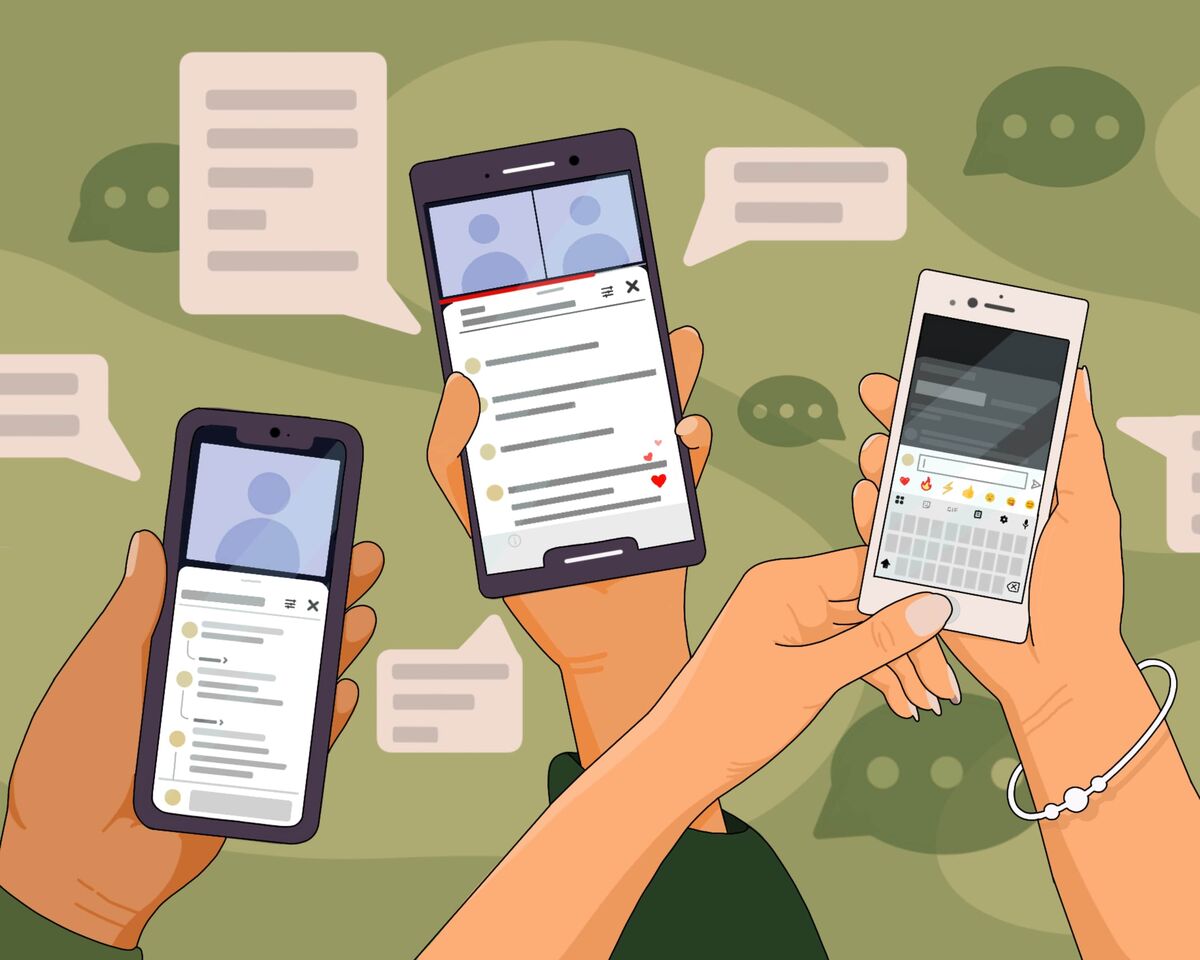Uncovering Positive Lessons from Youtube’s Negative Commenters

Commentary can hurt. Commentary can save. In fact, a word spoken by someone at some point can dramatically change our lives.
That's why comments have immense power and influence over creators. Today, we'll explore how to turn that very tool, wielded by our subscribers - namely, words - to our advantage.
Are comments beneficial or harmful for a YouTuber?
You probably understand that most situations in life cannot be viewed exclusively from one perspective.
Take, for example, having a few dollars stolen from your pocket in a crowded place. It's an unpleasant situation, undoubtedly. But if you try to find something positive in it, you'll find it. For instance, you gain the experience not to keep cash in your pocket but rather in your wallet or bag.
Of course, we understand that it's not always possible to view every situation so positively. But that's not the main focus of this article.
Audience support inspires, while negativity from haters can sometimes be disheartening. That's why we suggest collectively learning to turn negative comments to our advantage.
According to recent statistics, more than 60% of children and 40% of adults have become victims of cyberbullying - these are indeed significant numbers. It's saddening that hatred on the internet is only growing these days.
That's precisely why it's crucial to understand why strangers hate us and how to deal with it without losing our minds.
Let’s attempt to understand toxic online behavior.
Before delving into outright hate, it's crucial to gradually understand how feedback from viewers works.
First and foremost, you need to determine if the comment is genuinely hateful.
Some individuals react very sensitively to criticism. They perceive any deviation from their viewpoint as personal attacks. However, that's often not the case.
Then there are comments like: "your speech is terrible," "the video is dumb, everything here is false," "the lighting makes you look old," and so on.
In the above cases, even if the commentators are partly correct, we must develop a thick skin to learn how to filter out these types of remarks.
People are very different. Some have a cranky disposition, some are having a bad day, and some are just uncouth. Consequently, a comment may contain useful feedback but be coated in bitterness.
That's why it's essential for us to learn that people may convey valuable information about your content in unexpected ways.
Clarification is key: if the feedback crosses the line from useful to a direct attack on your character, these individuals need to be dealt with. Whether it's ignoring them to avoid escalating conflicts, addressing the issue directly, or simply banning them, it's up to you to decide what's most comfortable.
In this matter, it's crucial for your audience to align with your interests and foster a non-toxic atmosphere. As the channel owner, you have the right to determine the type of audience you want.
How to respond to hateful comments
Yes, sooner or later, this happens to all creators. Trolls or highly irrational individuals appear in the comments, spewing nastiness about you, your family, your country, and so on.
Therefore, always keep in mind that busy and productive people are not on social media to spread negativity in someone's comments. They're too occupied and prefer to deal with their own lives rather than the lives of random people on YouTube.
And precisely who is behind internet trolling, clinical psychologist and author of a book on anxiety, Arlin Kunchich, helps us understand. She conducted extensive research and, among the works of doctors and psychologists, identified the reasons that drive people to engage in cyberbullying.
And it's all about :
- Mental health issues
- Encounters with cyberbullying: meaning the person themselves was once subjected to bullying
- Conflict situations and breakups: here, familiar people come into play: former friends, or simply exes.
- Boredom or an attempt to try out a new image: this reason applies to children and teenagers who are trying to understand and explore themselves, as well as to detach themselves from reality a bit
- Loneliness and isolation
The above states that there is always some root cause behind cyberbullying, which concerns the offender exclusively, not you. That is why, as the only sober and reasonable person in this anonymous dialogue, it is important for you to understand that giving in to manipulation is not an option.
On one of the Think Media podcasts, professional financial expert and YouTuber George Kamel shared his story related to a hater:
"I responded to this person (the hater), and he said he sent me a personal message, in which he said: 'Hey, man, I'm really sorry I sent that comment.' First of all, I replied to him with kindness. I think this is the real key: you choose the right path and show them: 'I am a real person and I see your comment, and I'm not going to respond in the same way.' This sort of defuses the situation. At that moment, the offender loses steam, and that's why the guy wrote to me: 'I applied for a job, but didn't get it. And then I saw that over the years you've become a real personality, and that just made me angry'."
The person behind the bullying is never specifically angry at you. They are angry at the situation they find themselves in, and you are merely a litmus test reflecting their own problems.
Nobody, absolutely nobody, deserves hate directed at them for trying to express themselves in the media space.
So how can you turn the negativity to your advantage?
- Sometimes, amidst the negativity, there are genuinely valuable pieces of advice. Therefore, it's important to learn to read comments, ignoring the emotional coloring of words. Yes, it's difficult and painful, but alas, vlogging is based on communication, and it's important for us to learn to shield ourselves from negativity.
- Try responding with kindness. Often, behind every hateful comment, there's a person who has been hurt to some extent. And George's example proves this: a hater can easily turn into a devoted follower. Sometimes people think they'll go unnoticed — that's why they boldly and briskly sling mud. But as soon as you engage with the offender and speak to them reasonably, you diminish their level of anger.
And don't forget that YouTube doesn't have a filter that evaluates the quantity of bad or good comments. What matters to YouTube is the overall activity on the channel. Therefore, you're not obligated to respond to silly and unpleasant comments, you're not obligated to let them affect you. But leveraging the fact that haters boost activity on the channel is definitely worth considering.
An unusual way to encourage your audience to comment
In the comments, you can find both good and bad. And we are learning to turn all the negative aspects to our advantage. But what should you do if there are no comments at all? Or there are so few that it seems like there are none?
In a recent video, Nate Black—an expert in YouTube strategy—shared with us a very interesting life hack. One of his videos garnered a record number of comments simply because he used an atypical call to action for YouTube:
"Regular comments on this channel help me remember you because I enjoy reading as many comments as I can possibly read. And when I see someone regularly commenting, genuinely contributing to the conversation, it makes me think, 'Hmm... I need to check out their channel.' And the number of times I've clicked on the channels of people who regularly leave me comments, you'd be surprised."
Look at the crazy boost Nate experienced after this video.
All this should motivate us to be as honest as possible with our audience, to become their companions, and to attract them with our openness.
And here's another argument in favor of maintaining open communication with your audience.
Nate uses the "Community" tab on YouTube as the perfect opportunity to get analytics from his own viewers.
Once, he directly asked his audience: "What makes you comment on YouTube videos most often?"
Look at these results. No calls for comments motivate people to write them as actively as something truly good or funny.
"Grow a thick skin, but don't forget to keep the softness of your heart" — here's another piece of advice from George Kamel that everyone should strive to follow.
Unfortunately, the most hurtful comments are always those that contain a grain of truth. Those areas where we doubt or feel uncertain. Therefore, to learn to overlook negativity on the internet, it's important for us to gain self-confidence. The path isn't quick, but in content creation, it's indispensable. You got this!




